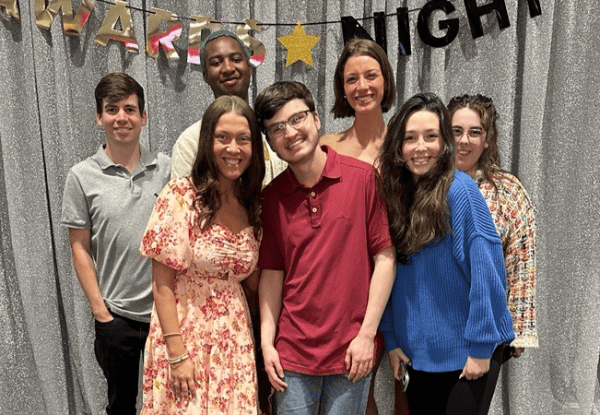Opinion | Daylight Saving Time doesn’t save us anything, actually
The only thing it’s good for is making us way sleepier than necessary.
March 29, 2021
There are a lot of problems to be concerned with right now. Really, look at any genre of problem—social, political, health, environmental—and you’ll find somewhere between a dozen and a million pressing issues. This column is not about a pressing issue, and you may not even think about the source of this problem again until November, but still: Congress should do away with Daylight Savings Time (DST). It’s nonsense, and it’s a detriment to public health.
Time and light effect everyone. Natural light, from that gurgling star we call our sun, is 100 to 1000 times brighter than electrical light. It churns and sets the clock within our cells, tells us when to eat, sleep, when our body can best move and when our brains best function. Light is a critical part of your life. No matter how much you stay inside for school, work, or the like, it is likely you still encounter––that is, see the light of—day, and you can bet money your cells take note of that encounter.
There is the social clock and body clock. Our body clocks matches our environment in a 24-hour cycle. Our circadian rhythms (unless you are deemed a “B-person”) follow the sun clock, the natural ebb and flow of light and darkness during a 24-hour period telling our bodies what to do at what time. The body clock often doesn’t match the social clock, especially if you live on the western edge of a timezone, at least according to some scholars from an article of the Journal of Biological Rhythms. Ideally, you’d want social clocks and body clocks to match, so that it’s high noon in the sky and on watches, but human political creations like DST disrupt that relationship.
According to an international organization, the Society for Research on Biological Rhythm (SRBR), DST can be dangerous for many. Every year, according to many studies and science-based research by SRBR, when we change the clocks due to DST, there are more traffic accidents, heart attacks, upticks in seasonal disorders, worse performance at work and there’s evidence our body clocks don’t quite adjust to the social clock of DST over the course of many months. Sleep, an already undervalued resource in the busy lives of being American and being a student at a university, but vital to our health, makes this issue all the more important.
DST is a byproduct of The Uniform Time Act of 1966, and was largely created to save Americans money on energy. However, a report from 2008 showed that only 0.03% of energy was saved during the months of DST, and the money it saved on gasoline was “insufficient.” If saving money is the main reason for DST, I have to conclude its lack of economic impact makes the whole practice pointless.
There’s a growing movement of Congress members and states that want to change DST. Alabama legislators joined the chorus but failed with its own bill in 2019. 15 other states in recent years attempted similar efforts. For the change to really happen though, legislation must be passed federally. Senator Marco Rubio of Florida has been a leader for the Sunshine Protection Act of 2021. It would make DST permanent and repeal section 3 of The Uniform Time Act. DST puts the public at risk, makes people cranky in the morning and muddles up the body clock, and in addition, it doesn’t save money for anyone.
Maybe Congress can agree that it’s time to change.
Tucker Legerski is a graduate student studying creative writing. His column runs regularly.










